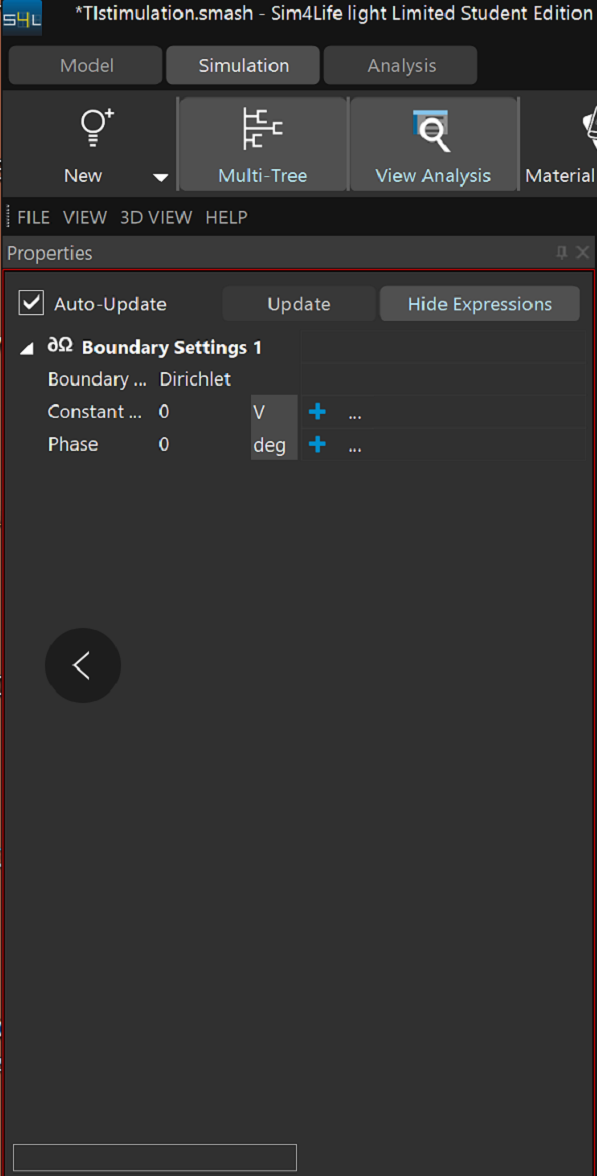stimulation
-
I perform tDCS, but I have some problems.I am using the Electro Quasi-static LF solver, I set the electrode as the simulation boundary conditions where I can input the voltage and flux.Is there a way to input the desired current amplitude somewhere ?
![alt text]
best wishes -
Hi @hiTina, I think you can find your answer in the following thread: https://forum.zmt.swiss/topic/121/lf-magneto-static-vector-potential-solver
The flux boundary condition is not suitable here. You should use voltage boundary condition (Dirichlet) and then scale up or down to get the desired current. -
Hi @hiTina, I think you can find your answer in the following thread: https://forum.zmt.swiss/topic/121/lf-magneto-static-vector-potential-solver
The flux boundary condition is not suitable here. You should use voltage boundary condition (Dirichlet) and then scale up or down to get the desired current. -
@hiTina yes you should use the Dirichlet boundary condition at the two electrodes, and no you should not set them as PEC, because EM LF solvers do not accept the same object in both the material setting and the boundary condition setting.